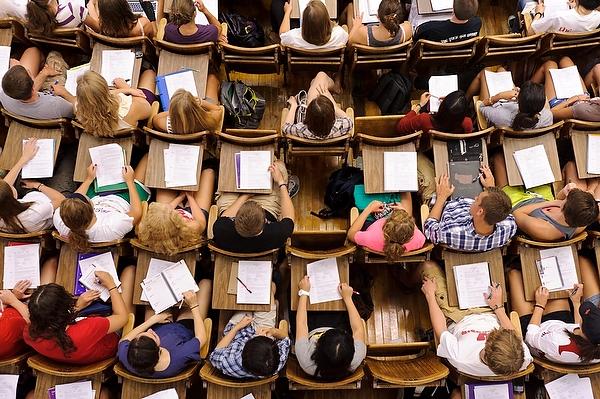Last month, Wisconsin Republicans introduced a series of bills threatening to cut state funding of any public Wisconsin school by 10% if caught teaching critical race theory.
Though the bills do not mention critical race theory by name, their language and timing make it clear this move is part of a recent campaign which has inspired 25 other states to propose similar laws blocking the discussion of race in classrooms.
Critical race theory is an academic discipline that began in law schools in the late 70s.
Kimberlé Crenshaw, the first to use the term “critical race theory,” recently defined the curriculum as “a way of looking at law’s role platforming, facilitating, producing and even insulating racial inequality in our country, ranging from health to wealth to segregation to policing.”
Simply put, the critical race theory is not a noun but a verb. It enables people to talk about how American history has shaped our current society.
While the exact definition of the theory is often contested by those who study it, its critics have created their own definition of the discipline. Republicans are now using critical race theory as a shorthand for any subject that addresses systemic racism, equity or anti-racism.
Reduced funding for history education is extremely problematic
Many people blame Christopher Rufo, a senior fellow at the Manhattan Institute, for the recent hysteria on the right. Last summer, Rufo appeared on Fox News to warn about the indoctrination of our youth under the name “critical race theory.”
Three weeks later, then-President Trump signed an executive order to ban teaching diversity training in the federal government. President Biden overturned the order on his first day in office, but 26 states have since either proposed bills or passed laws with similar language.
This sudden outrage over a decades-old academic discipline has left critical race theory scholars scratching their heads. One of the many problems with this movement is like most academic theories, the theory isn’t even being taught in anything except graduate and law schools.
Gloria Ladson-Billings, professor emerita at the University of Wisconsin and one of the first to apply critical race theory in her studies on education policy, thinks its sudden rise in popularity is just a political smokeshow.
In an interview with NPR, Ladson-Billings said politicians are incorrectly using critical race theory for political gain.
“I think the critical race theory is the red herring. I think what people are really going after at this point is the 2022 and the 2024 elections,” Ladson-Billing said in the interview. “…Well, then what you have to do is gin up a culture war. And that’s what I think is happening.”
As Director of the Boston University Center for Antiracist Research Ibram X. Kendi puts it, Republicans are fighting a one-sided battle. By carefully twisting the language of the theory to fit their own definition, they’re able to create a strawman they can tear down in front of an audience.
The critical race theory that Wisconsin lawmakers claim is threatening our schools isn’t the critical race theory, but instead a series of initiatives brought on by school districts that include measures like racial justice workshops and anti-bias training for staff.
School districts found these initiatives even more necessary after a historic summer of racial protests that followed the killing of George Floyd. Many administrators and teachers began to re-examine previously held beliefs about race.
In contrast, the right claims the theory is revolutionary and challenges the foundation of American democracy. Rufo even says it would undermine the “Declaration of Independence and destroy the remaining structure of the Constitution.”
It’s clear the theory’s critics are not as concerned with the spread of critical race theory as they are with the preservation of teaching an idealized version of America — one in which structural racism was abolished with the Emancipation Proclamation and then again with the Civil Rights Act of 1964.
Omitting details about American history from schools in the name of patriotism is nothing new, but it’s irresponsible to continue this tradition.
Racism plays an important role in American history. Vaguely worded bills like those proposed in Wisconsin will only make it more difficult for teachers to teach about certain subjects and events
WI must end preemptive laws regarding plastics to preserve environment
Critics also say race is “inappropriate” for children, arguing this topic should be left out because it makes people uncomfortable. But a classroom is the most appropriate place to discuss these issues, especially when they are so frequently the topic of current events.
A sanctioned discussion with people who might offer a different perspective than your immediate circle seems like a reasonable antidote to learning about race through a Facebook feed or network television.
Evers is expected to veto these bills, but they have started an important conversation about systemic racism in the classroom. While it’s unlikely the critical race theorycr will ever be formally taught in K-12 classrooms, issues like race, diversity and equity should have a place in primary American education.




















